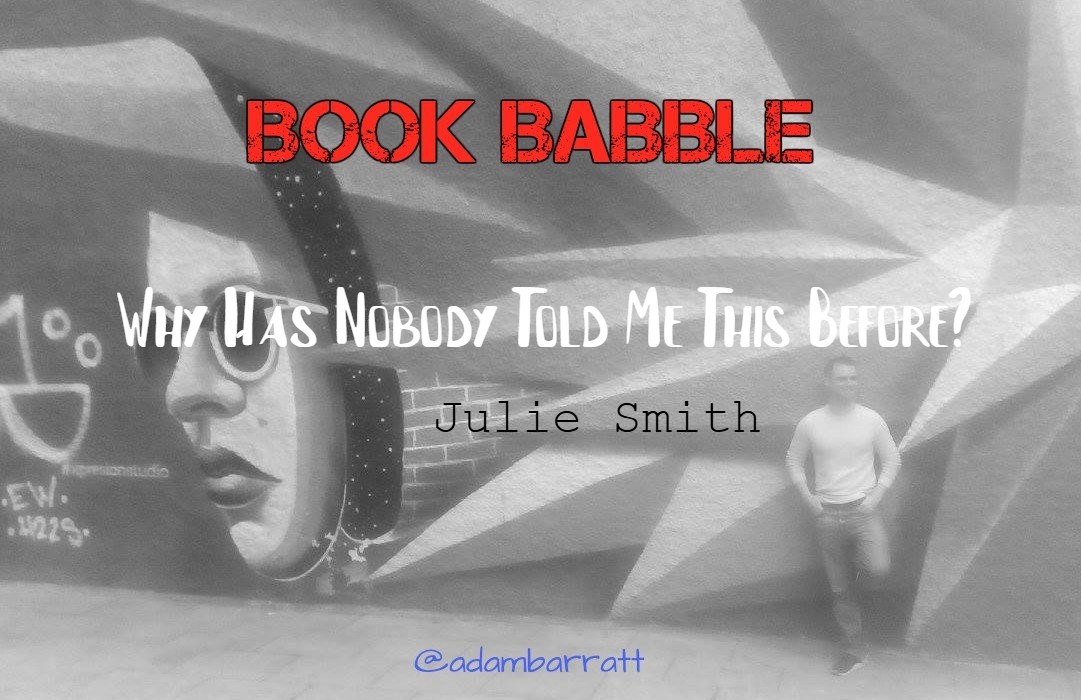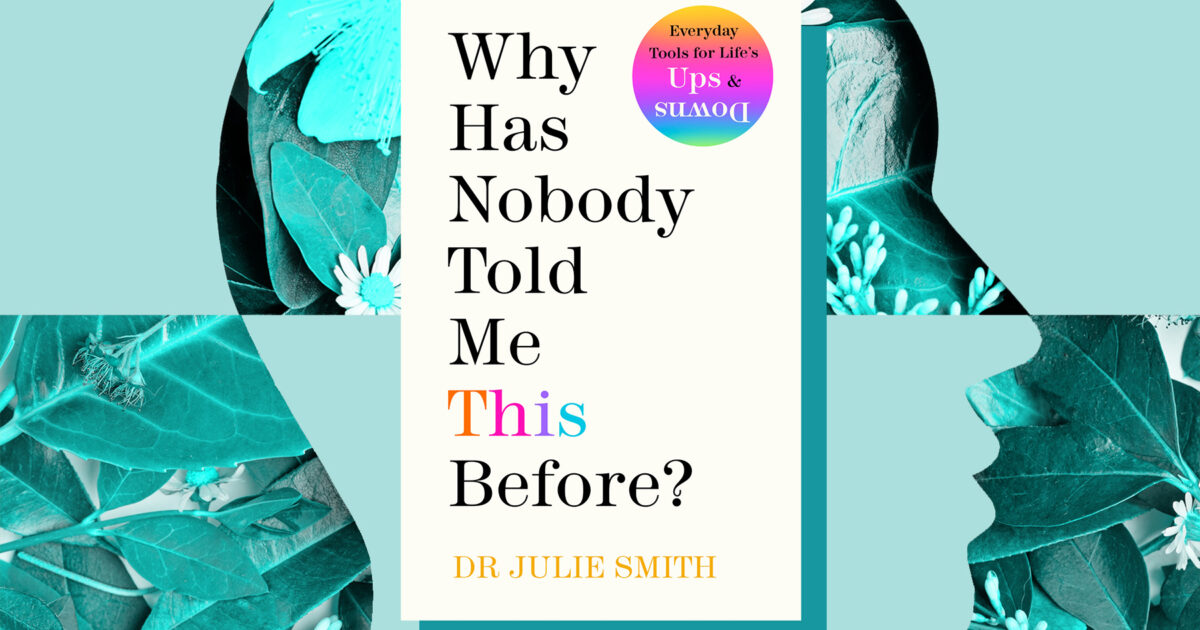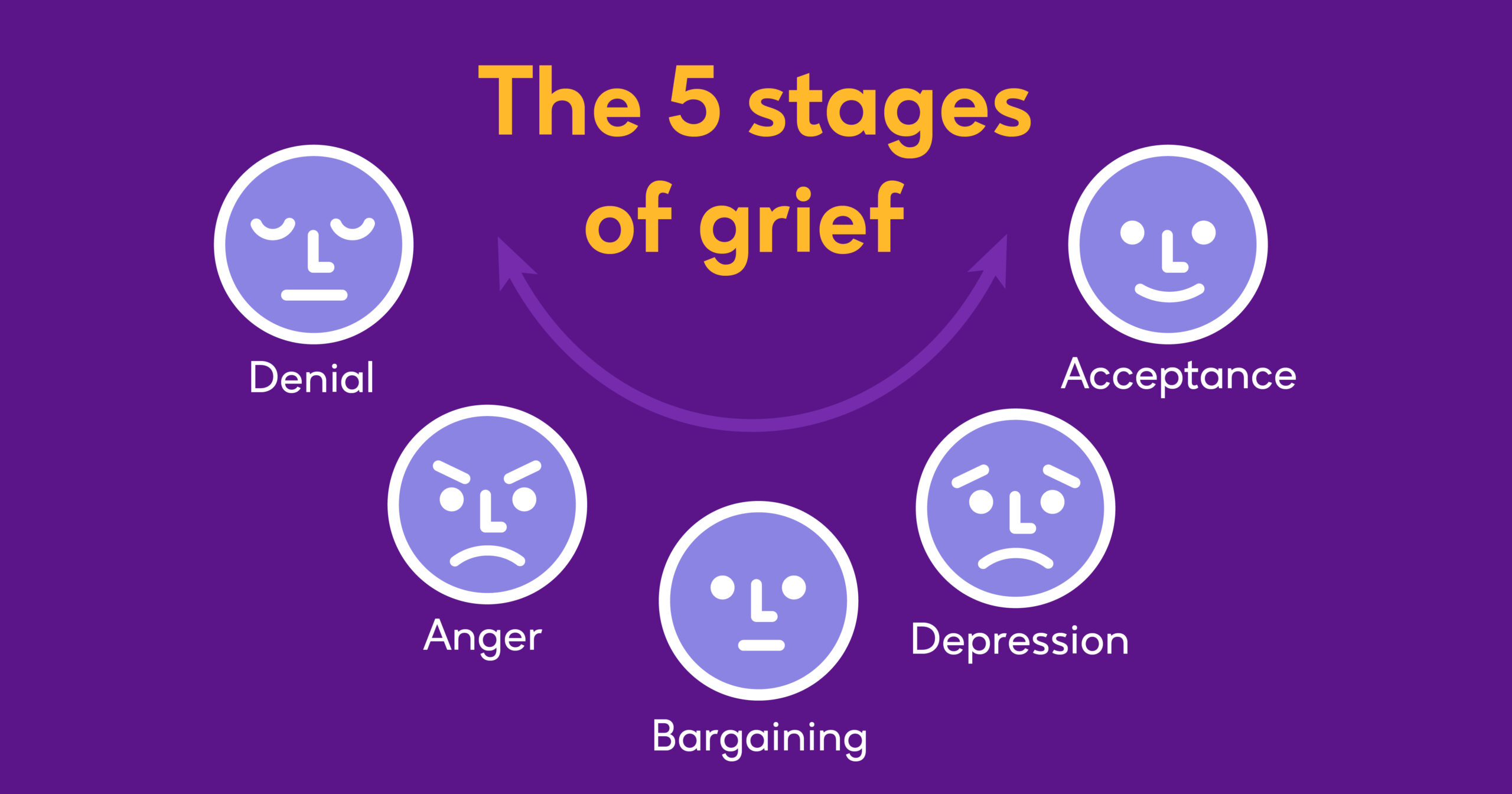Everyday tools for life's ups and downs... 
A Sunday Times bestseller (make of that what you will) and with over 1 million copies sold, this is a fairly mainstream psychology book written off the back of some of the author's Social Media efforts.
Dr Julie Smith became quite popular on TikTok over the past few years and gained some notoriety on the platform and subsequently beyond. Being a doctor of psychology she has studied the subject and worked with patients/clients over the years so that app activity was distilling that wisdom and experience into snackable video format.
So it then made sense to flesh it out into a written book which makes a handy reference and can delve a little deeper. And that's what this book is. Let's jump straight in following a brief intro from the author...
Some great quotes from the book followed by my thoughts...
The thing about the human brain is that, when you believe something, the brain will scan the environment for any signs that the belief is true.
Confirmation bias at its finest, and the importance of positive and life-affirming focus. Once you believe something then you'll actively seek that out, consciously and subconsciously. Things that don't match up will be discarded, and things that do just confirms and re-affirms your belief. The best bet is to get it working on our side.
All-or-nothing thinking Also known as black-and-white thinking
This is a toughy for a lot of people whether there's a mental illness at play or your average day to day mind. This is so dangerous as nothing can be perfect or all of one thing, and there are always nuances and phases in between. We know this but can't help this way of thinking and subsequent acting.
It can leave us completely paralysed, explain procrastination, and also affect relationships where we can't reach compromise or at least understand the position of the other.
you can’t control the thoughts that arrive in your mind. The part you can control is what you do once they appear.
You might have some impact on your thoughts further in advance and you can also direct your thougts to a degree. However, things will pop into your mind all the time and there's not a whole lot you can do about it. You can simply see it and let is pass, you can address it in some way or just move on.
As ever, it's all about controlling the controllable... in this case what we do following these thoughts, whether we let it spiral, and if and how we act.
Metacognition
This is awareness and undertanding of you own thoughts and thought process. It's what separates us from animals and gives us the chance to analyse and change. We can step back, not in a dissociation or avoidance sense, but as an observer who can see the situation for what it is, remain calm and do (or not) what's appropriate.
Thoughts are not facts. They are a mix of opinions, judgements, stories, memories, theories, interpretations, and predictions about the future.
Thoughts can be anything. Things flash into your mind all day every day. They might well be based on something and have some truth to them, but they have been influenced by a number of things and may or may not be wholly accurate.
It's wise to take them with a pinch of salt. Sometimes there might be some merit and need to be addressed, other times it's a load of repeated nonsense and best to move on.
When it comes to thoughts, attention is power.
It's all about intention and attention. The more you direct your energies in the appropriate direction, the more of the 'correct' thoughts (and less noise in general) will flow. And on the flip side, you can choose which of your thougts that do come to pay attention to, and which to ignore.
I am not about to tell you that you can manifest things in your life just by focusing on them. But we have to look where we are going if we want to stay on course.
That's the way of some of the material out there. Magical whimsical law of attraction and all that jazz. Nothing wrong with that to a degree, but all it is really is cause and effect. You focus on certain things and then naturally things go in that direction or related experiences come to the fore.
‘What would I do if I was at my best?’
This is a good question to ask yourself. You may not be at your best but there is a version of you that could be, and how would they act? What type of person would you be and how would you roll? You can start being more of that person at any time.

Mindfulness
It's always good to be reminded of mindfulness. Whether that's a meditation practice or just generally more present moment awareness, then we need to cultivate these times and general way of being. In
the last BookBabble, meditation came up and these kind of things (like exercise) are cornerstone habits that affect the rest of this stuff very strongly.
When it comes to tackling low mood, we have to focus on making good decisions, not perfect decisions. A good decision is one that moves you in the direction you want to go. It doesn’t have to catapult you there.
Do the best we can with the information we have. Any decision is good as we get to move forward rather than being stuck (don't end up like
Burridan's Ass!). We can always make new
decisions as and when they're appropriate but we'll never have all the info anyway until we move forward in a particular direction.
The traditional Mediterranean diet shows the largest and strongest evidence base for mental health benefits
Yeah, the Med diet is still one of the best for health and longevity. There are many other fads and ideas that may or may not be a good fit for many people, but the freshness and types of ingredients, along with the weather and lifestyle make it probably the best and sustainable way of living.
Establishing a balance of predictability and adventure that works for you within your unique circumstances is key.
Enough certainty that you feel secure and have a structure about how you live your life and how it's likely to go. But enough sponteneity to keep it interesting, flexible and fun.
We must not wait until we feel like it, because feeling like it doesn’t come first, the action must come first.
We might be waiting a long time for inspiration to strike so it's best to get moving regardless. Ironically, it's after you get going that inspiration and motivation kick in. Of course, it can work the other way, just not very often or reliably. Get to work and see what happens.
procrastination and anhedonia.
I'm sure we're all familiar with procrastination. Anhedonia refers to the loss of ability to feel pleasure and is a common symptom of depressive disorders and substance use. A certain apathy and nihilism.
There's a difference here between being
Stoic, grounded and not overly excited or upset... being level and keeping your emotions in check. Anhedonia would be more a clinical condition where you just don't feel any pleasure so it's difficult to get any joy in life, so what's the point.
the stages of grief
The 5 stages of grief are covered briefly and are an interesting note on how we grieve (and this can be in all things not just the traditional and more obvious reasons). They can fluctuate back and forth so it's not a case of moving through each one in a nice tidy linear fashion, but the framework tends to be what's followed and what a person will go through.
what we imagine those other people really think of us, the ideas and perceptions they might have of us. This is called the ‘looking glass self’
The Spotlight Effect. We always imagine people are thinking about us and then projecting all kids of ideas about what those thoughts are. Some may or may not be true, but generally speaking they couldn't care less about you and your antics, and are mostly thinking about themselves and what they've got going on.
egocentric thinking, which can play out in our insistence that other people live by the same values and obey the same rules that we have set for ourselves.
We believe we are right, live in the correct way and that everyone else should have similar values and follow a similar pattern. We understand that everyone's different, but overall that our views are 'about right' and others that aren't congruent are incorrect (at least as far as that particular thing goes).
And quite rightly we will flock together with those of a similar nature but then again we can go too far and eliminate any differing voices.
Courage comes first, confidence comes second.
Similar to how action generally comes before motivation and inspiration, confidence doesn't happen naturally in most cases. You become more confident when being courageous and tackling things which you then observe in yourself, thus becoming self-fulfilling.
Confidence means 'with trust' and you can trust yourself and what you're doing more when you have evidence of you stepping forward and being that person.
The way that we start to believe something more positive about ourselves is to use action to create evidence for it.
We need to see it for ourselves and then it becomes a part of who we are. Just trying to convince ourselves when we know that's not actualy true won't do much good. When you have evidence, then that's just the way it is and you act accordingly.
Those who are highly self-critical are more likely to be critical of others.
We tend to project our own feelings and ideas onto others. Conversely, those who are a bit more positive in one direction will likely be that way all round. There are the whingers out there, and the people that get things done.
Self-acceptance is not the same as passively accepting defeat.
The key is to accept things as they are, whilst striving for better. Not just giving up completely. That's 2 different things.
Reframing
Speaks for itself but
reframing is taking a situation and putting it in a (hopefully more positive) different light.
stress
One of the main contributors to all illnesses right here. Not in the loud, agitated way but quietly beavering away in the backround over time. I'm not sure people quite realise this and try all sorts to manage outcomes, symptoms and the like but continue with lifestyles that will never work, and continue with constantly being sick in one way or another.
we need to immerse ourselves in a narrow focus on the process, leaving no space for worrying thoughts about potential outcomes.
This is the ideal but so hard to do. We always tend to concern ourselves with what might happen, and the more we can just focus on the here and now, the more we can achieve and that future is more likely to pan out well too.
humans are not built to be in a constant happy state. We are built to respond to the challenges of survival.
It's not about drifting around all la-la happy, you wouldn't want that anyway.
There are challenges that need to be addressed, and there are plenty of times when unhappiness is appropriate. For sure, you should be a little optimistic and be trying to improve as well as have a good time, but get rid of the nonsense idea of all negativity disappearing. It's not attainable and will only do you a mischief.
Depending on your personality there's a 'happy medium' to be had :)
Anxiety
There was a whole section on anxiety and panic attacks so that could well be of use if you suffer (or people you know). Apparently this was added to the original version of the book as it was asked for by her readers.
Video review from Four Minute Books:
Thanks Julie! Anything Else?
This is a fairly popular recent book and you'll see it on some of the best sellers lists and in book stores. That's of course a great thing in one way, but on the other hand catering to the masses means catering to the masses ;). Therefore it's a bit more basic but that's the idea and can help a wider audience to learn and apply some of this stuff.
Nothing really new, groundbreaking or cutting edge here but a good basic understanding of the mind and its workings and exercises and ideas on how to navigate life. Useful if you're fairly new to the subject or want to cement some ideas, or see another perspective etc but don't expect to be blown away if you're a seasoned campaigner.
As well as the information, there are exercises and questions to reflect on which would work well in sessions but tend to get lost in books. Although that always depends on the reader and how much they're prepared to jump in! I found myself skimming towards the end but that probably says more about me.
So a solid offering worth a look but covering well worn ground.


